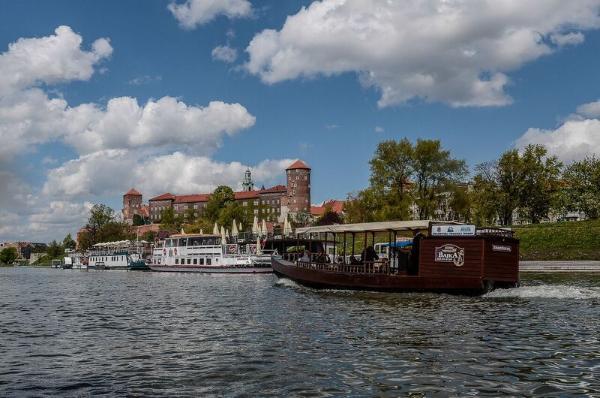
Two loans from the European Investment bank (EIB) will help improve significantly the quality of life and attractiveness of the second largest city in Poland.
The EIB is announcing today that it has signed a PLN 135m loan (approx. EUR 32m) to the City of Krakow for a number of urban projects designed to improve its key infrastructure, predominantly roads, mobility, public buildings and education. This is the first part of a wider PLN 1.0 billion (approx. EUR 238m) commitment approved by the Bank earlier this year. A second loan of up to PLN 200m (EUR 47.2m) has been signed with the City-owned heating network operator Miejskie Przedsiebiorstwo Energetyki Cieplnej w Krakowie (MPEC), to finance the modernization and extension of the heating system and new, more energy-efficient facilities.
“A smarter and healthier urban environment is a pre-requisite for future growth of the city and neighbouring region. We’re glad we can enhance our long-standing partnership with Krakow and contribute to the city’s development,” said EIB Vice-President Vazil Hudak, overseeing the bank’s lending operations in Poland.
Krakow is home to a well-developed private sector, prestigious academies and universities and is a major tourist centre, with around 10 million tourists per year – the most frequently visited place in Poland.
The two EIB loans demonstrate the EU Bank’s continuous support for the city and its municipal companies. Both projects are important in terms of climate action impact, environmental protection and further urban development of the City. The EIB financing will cover up to 50% of each project’s overall cost, with the remaining being financed by EU grants and/or beneficiaries’ own funds.
1. Krakow’s Intelligent and Sustainable Development project
The PLN 135 million loan (approx. EUR 32m) is the first signature under the Krakow Intelligent and Sustainable Development project, for which the EIB has committed PLN 1.0 billion (approx. EUR 238m) earlier this year. The overall EIB financing will help the City of Krakow to undertake a number of investment schemes, including urban roads upgrade, sustainable mobility schemes (public transport, cycling infrastructure, pedestrian areas, etc.), thermo-modernisation of buildings, urban renewal and regeneration, social housing, Information and Communication Technology (ICT) and other urban infrastructure. A large portion of the investments will be related to a Smart City concept, in line with the City’s development strategy.
Jacek Majchrowski, Mayor of Krakow, commented “The City takes pride in its sound financial management. Not one single “penny” we borrow is wasted, all the loans we receive are invested in the development of the city, and this, together with our own contribution, allows us to improve people’s lives in Krakow. The latest opinion polls by a leading national newspaper show that Krakow’s population is appreciating those efforts. In particular, they rate as some of the biggest achievements of the past years the building of new roads and junctions, modern urban facilities and the purchase of a modern fleet and equipment for public transport”.
2. Thermal rehabilitation of Krakow’s heating system
The project concerns the improvement and extension of the district heating network in the City of Krakow and Skawina municipality (Krakow district). The EIB PLN 200m (EUR 47.2m) will help the City-owned heating network operator Miejskie Przedsiebiorstwo Energetyki Cieplnej w Krakowie (MPEC), to reach four objectives: replace the existing solid fuel based heating systems, and particularly coal stoves; renovate and replace the piping and related network equipment; replace old substations with new high-pressure delivery systems; and further extend the network to newly developed areas of the city. As a result, the wider Krakow area will benefit from a more energy efficient and cleaner environment.
“Our company has been developing over time projects aimed at improving the city’s heating system network and at creating a more energy efficient environment”, said Jan Sady, President of MPEC S.A.. “We will continue to do so in the future, securing the necessary funding for our projects. In this respect, the European Investment Bank’s loans will add to the European Union’s grants, giving us more investment capacity. EIB loans are very favourable and flexible, which raises expectations of a seamless execution of our projects throughout their lifespan”.

©Bogusław Świerzowski - UMK
Download original

©Bogusław Świerzowski - UMK
Download original

©Bogusław Świerzowski - UMK
Download original

©Bogusław Świerzowski - UMK
Download original

©Bogusław Świerzowski - UMK
Download original

©Bogusław Świerzowski - UMK
Download original